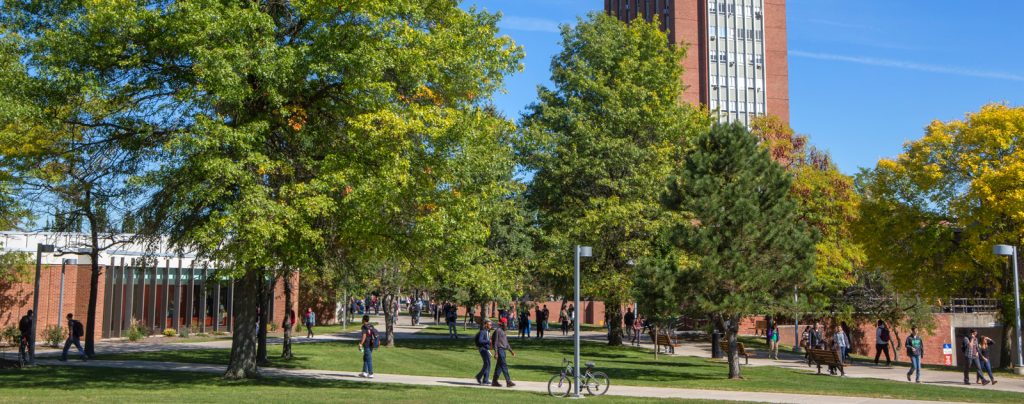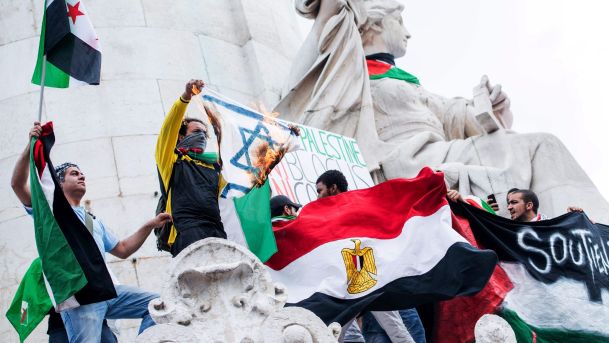
A walk around the Binghamton University campus reveals the diversity of our student population. The University’s global approach as well as its emphasis on inclusivity promotes learning beyond the formal walls of a classroom. Conversation between BU students, individuals of varying ethnic and faith backgrounds, fosters tolerance and prepares students for an increasingly interconnected world which demands understanding for those who are different.
Due to the accepting nature of our community, we have formed an environment where students feel comfortable displaying their religious clothing in public. For instance, this month’s Interfaith Shabbat, an annual program with Hillel and the Muslim Student Association, saw females in the traditional Muslim hijab eating dinner beside their kippah-clad Jewish classmates as they discussed similarities as religious college students. Though my payot, the long sidelocks of some observant Jewish males, a sight more common in Brooklyn than in Binghamton, are sometimes the source of looks by passing students, my visible Jewish identity is more frequently a conversation starter and a powerful opportunity to discuss religion and how I negotiate a secular college campus with such comfort. Unfortunately, these freedoms that I and so many others cherish dearly are actively being threatened in other parts of the world.

In recent years, an increasing number of violent anti-Semitic incidents in France including the murder of four Jews in a kosher supermarket during the Charlie Hebdo shootings have tainted the country’s image as a safe and welcoming liberal democracy for its 475,000 Jewish residents. Last year, journalist Zvika Klein decided to put allegations of the deteriorating situation for French Jews to the test, wandering the streets of the capital wearing a kippah and tzitzit, ritual fringes.
Klein’s kippah quickly catches the attention of nearby residents as the verbal assaults begin to flow. “Jew!” shouts a number of Parisians while others spit at Klein as he passes. A boy can be heard asking, “what is he doing here, Mommy? Doesn’t he know he will be killed?” The experiment captures an unfortunate conversation currently taking place among French Jews and Jews of other European nations.
This past January, a 15-year-old stabbed a Jewish teacher in Marseilles as he walked to synagogue for morning prayers. As the teacher was wearing a kippah at the time of the attack, the incident reignited the debate whether one should conceal external signs of their Judaism in public to guarantee safety. The head of Marseilles’ Jewish community responded by recommending a removal of the kippah “for the time being,” while France’s chief rabbi suggested that such defeatist moves would only give the impression that “Jews bear some responsibility for being attacked.”

Regardless of one’s stance on the matter, the mere existence of this debate is troubling. The notion that my coreligionists must choose between faith and safety is unnerving. Jewish institutions in France and elsewhere throughout Europe operate like fortresses, guarded round-the-clock by heavily armed soldiers as if an attack is imminent. A significant Jewish emigration from Europe to Israel in recent years further highlights the demand for a secure Jewish future that many now believe can be assured only in the safety of a sovereign Jewish state.
Knowledge of the hardships currently facing Jews, but more importantly of the resilience of many despite the danger, leaves me with a newfound appreciation for the ease in which I can proudly practice my faith here at BU. The case of European Jewry is but one example of the difficulties facing religious communities around the world today, and these realities must serve as a crucial reminder of the need to protect and strengthen our oasis of coexistence, for it can never be taken for granted.
Contributed by CAMERA Fellow Joshua Seed at Binghamton University.
Originally published in the Pipe Dream.
APPLY for the 2016-2017 CAMERA Fellowship (by April 1st)!

